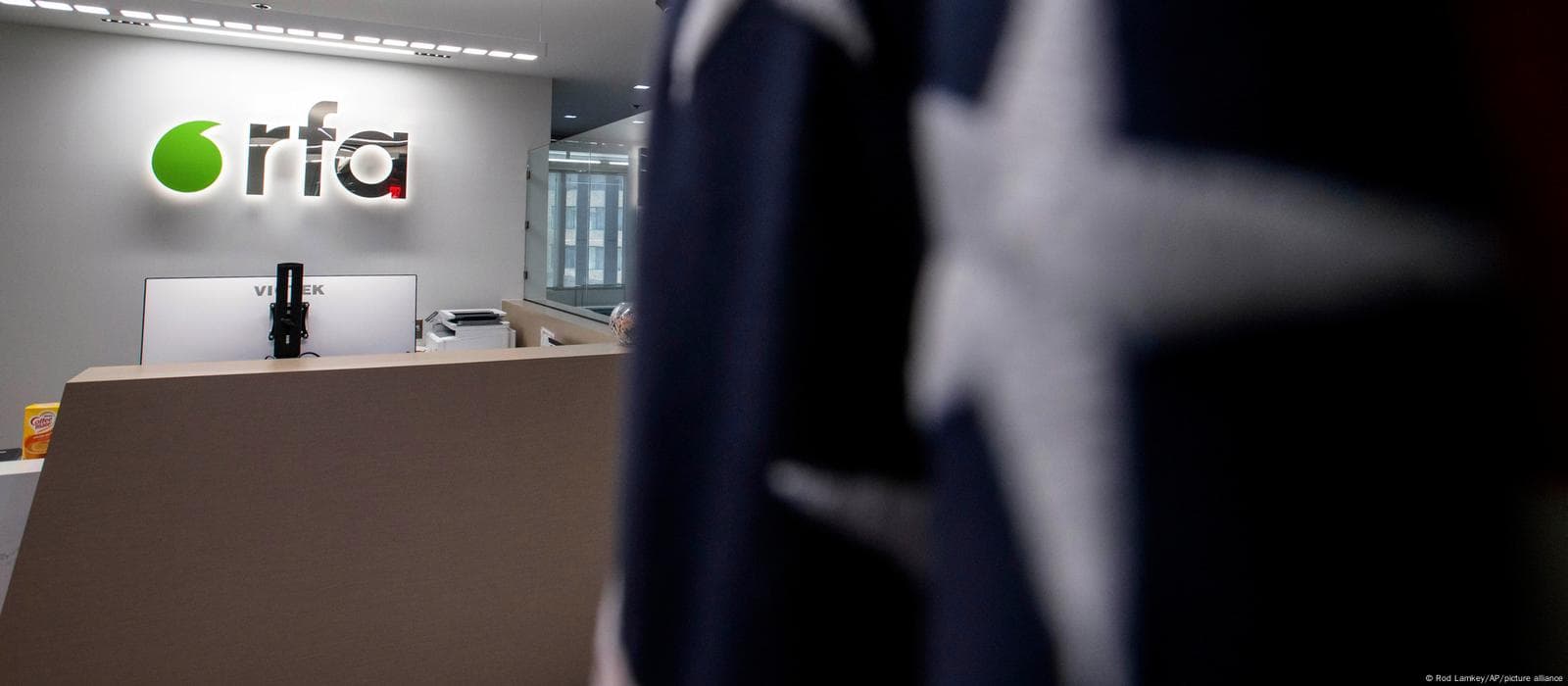We're loading the full news article for you. This includes the article content, images, author information, and related articles.
The unprecedented suspension of the US-funded broadcaster, a key source of uncensored news in Asia, signals a deepening crisis for global press freedom and raises concerns for the future of similar media services operating in Africa.

For the first time in its 29-year history, Radio Free Asia (RFA) suspended all news operations effective Friday, 31 October 2025, a direct consequence of a prolonged United States government shutdown and severe funding cuts initiated by the Trump administration. In a statement released on Wednesday, 29 October 2025, RFA President and CEO Bay Fang announced the drastic measures, citing "the fiscal reality and uncertainty about our budgetary future." The shutdown forces the closure of overseas bureaus and the formal layoff of staff, many of whom have been on unpaid leave since March 2025.
Established by the U.S. Congress in 1996 following the 1989 Tiananmen Square massacre, RFA operates under a mandate to provide accurate, uncensored news to Asian countries with repressive media environments, including China, North Korea, Vietnam, and Myanmar. The private, non-profit corporation is funded through grants from the U.S. Agency for Global Media (USAGM), an independent federal agency overseeing all U.S. civilian international media. RFA has produced groundbreaking journalism, notably being the first to report on the systematic detention of over a million Uyghurs in Xinjiang in 2017. Its closure is seen by press freedom advocates as a significant blow to holding authoritarian regimes accountable.
While RFA's broadcast footprint is in Asia, its suspension has immediate and significant implications for the African media landscape. The crisis extends to other USAGM-funded entities, including Voice of America (VOA), which has a vast audience of over 93 million in Sub-Saharan Africa and provides crucial services in languages like Swahili, Somali, and Kinyarwanda. The same executive order from March 2025 that crippled RFA also led to mass layoffs at VOA, threatening its operations across the continent. According to a March 2025 report by Medafrica Times, the dismantling of VOA has left a void in reliable news sources in countries where independent media is fragile. Analysts warn this creates a strategic vacuum that state-run media from China and Russia are eager to fill, potentially reshaping the continent's information ecosystem.
The funding crisis began in earnest on 14 March 2025, when President Donald Trump signed an executive order to dismantle USAGM, terminating grants to RFA and its sister networks. This move was condemned by press freedom organizations like the Committee to Protect Journalists (CPJ) and Reporters Without Borders (RSF). CPJ CEO Jodie Ginsberg stated the move was "putting the lives of journalists... in grave danger." RSF noted that the cuts not only silence a vital news source but also endanger journalists on U.S. work visas who now face potential deportation to authoritarian home countries where they are at risk of arrest and imprisonment.
The suspension of RFA's operations is more than the closure of a single news outlet; it represents a significant retreat of U.S. support for independent media globally. For Kenya and East Africa, it serves as a stark warning about the fragility of donor-funded media and the geopolitical shifts influencing the flow of information. As international support wavers, the onus increases on local and regional initiatives, such as the Media Development Investment Fund's (MDIF) Amplify Kenya program, to foster sustainable, independent journalism. However, the loss of established, far-reaching platforms like VOA and the precedent set by RFA's closure pose a formidable challenge to maintaining a free and pluralistic media environment across the region.
Keep the conversation in one place—threads here stay linked to the story and in the forums.
Sign in to start a discussion
Start a conversation about this story and keep it linked here.
Other hot threads
E-sports and Gaming Community in Kenya
Active 9 months ago
The Role of Technology in Modern Agriculture (AgriTech)
Active 9 months ago
Popular Recreational Activities Across Counties
Active 9 months ago
Investing in Youth Sports Development Programs
Active 9 months ago